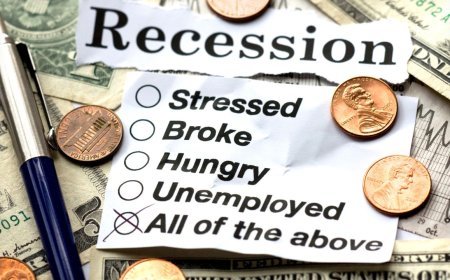The Psychology of Budgeting: Why Most Budget Plans Fail and How to Build One That Sticks
Creating a budget feels like going on a diet—full of good intentions, rigid rules, and an almost inevitable crash back to old habits. You've probably tried the 50/30/20 rule, zero-based budgeting, or envelope methods, only to abandon them within weeks when real life refused to fit into neat categories. The problem isn't your willpower or mathematical skills; it's that most budgeting advice ignores the psychological realities of how humans actually make financial decisions. We're emotional creatures trying to impose logical systems on inherently messy lives, and traditional budgeting methods set us up for failure by fighting against our natural tendencies instead of working with them.

In This Article:
- Why Traditional Budgets Fail: The psychological traps that sabotage most budgeting attempts from the outset.
- Understanding Your Money Personality: How your emotional relationship with money shapes your spending habits.
- Building Flexible Systems That Work: Crafting budgets that adapt to real-life unpredictability instead of resisting it.
- The Power of Automation: Leveraging technology to eliminate reliance on willpower.
- Sustainable Long-Term Strategies: Maintaining financial discipline without feeling deprived or constrained.
The problem isn’t your willpower or math skills; it’s that most budgeting advice ignores the psychological realities of how humans make financial decisions. We’re emotional beings trying to impose rigid, logical systems on inherently chaotic lives. Traditional budgeting methods often set us up for failure by clashing with our natural tendencies instead of aligning with them.
The Fatal Flaws of Traditional Budgeting
Most budgeting systems fail because they rely on unrealistic assumptions about human behavior. They expect perfect foresight of future expenses, unwavering discipline to adhere to strict categories, and the ability to predict every financial need months ahead. Real life, however, is unpredictable—emergencies, opportunities, and temptations don’t follow a script.
Traditional budgets also trigger “restraint bias,” where we overestimate our ability to resist temptation. For example, allocating just $200 for dining out creates a tug-of-war between your logical brain and emotional desires. When emotions win—as they often do—you’re left with guilt, frustration, and a sense of failure, leading many to abandon their budgets entirely.
Moreover, rigid budgets don’t accommodate the irregular nature of expenses. Car repairs, medical bills, or spontaneous social events rarely align with your planned categories. When these inevitable surprises hit, strict budgets collapse, making you feel like you’ve failed when you’re simply navigating life’s unpredictability.
Understanding Your Financial Psychology
Before crafting a budget, reflect on your unique relationship with money. Are you a saver who finds comfort in growing account balances, or a spender who thrives on purchases and experiences? Neither is inherently better, but your budgeting system must align with your natural inclinations to succeed.
Identify your spending triggers—emotions or situations like stress, boredom, social pressure, or celebration that prompt unplanned purchases. For instance, some overspend during sales to feel in control, while others splurge to celebrate milestones. Recognizing these patterns allows you to build proactive safeguards, like setting aside “fun money” for spontaneous moments, rather than relying on willpower.
Your background also shapes your money mindset. Those raised in financial scarcity may hoard or overspend when money is available, while those from stable backgrounds might underestimate irregular costs. Understanding these tendencies helps tailor systems to your psychological needs.
Building Flexible Financial Systems
Instead of rigid budgets, create adaptable financial systems that prioritize key goals while allowing for human imperfection. Start by listing non-negotiable expenses—housing, utilities, minimum debt payments, and groceries. These form the bedrock of your system.
Next, treat savings goals like fixed expenses. Automate transfers to savings or investment accounts right after payday, ensuring your priorities—like an emergency fund or retirement savings—are met before you can spend elsewhere. This “pay yourself first” strategy minimizes temptation.
For discretionary spending, use percentage-based guidelines instead of fixed amounts. For example, allocate 10-15% of your income to groceries rather than a strict $300. This provides flexibility for price fluctuations or unexpected needs while keeping spending in check.
Create buffer categories for irregular expenses like car maintenance, medical costs, or gifts. Set aside small amounts monthly—say, $50 for repairs—to prepare for inevitable surprises. This approach prevents one-off expenses from derailing your entire system.
The Power of Automation
Technology can bypass psychological barriers that doom traditional budgets. Automate savings transfers to make saving effortless; the money is gone before you can spend it. Automatic bill payments reduce mental effort and prevent late fees, streamlining financial management.
Consider using separate accounts for distinct purposes: one for fixed expenses, another for discretionary spending, and others for goals like travel or emergencies. This creates natural spending limits without constant oversight. For example, keeping “fun money” in a separate account curbs overspending while preserving freedom.
Financial apps can send spending alerts when you near preset limits, offering gentle nudges to stay mindful without the guilt of rigid budgets. Tools like these make financial management less about willpower and more about smart systems.
Behavioral Economics in Practice
Behavioral economics offers insights to design systems that align with your psychology. “Mental accounting” explains why we treat money differently based on its source or purpose. Use this by creating dedicated accounts for goals, making it harder to dip into your vacation fund for daily expenses.
Loss aversion—feeling losses more than gains—can be leveraged by framing savings as gains in security or freedom, not sacrifices. Similarly, the endowment effect makes you value money more once it’s “yours.” Transfer funds to savings immediately to create a sense of ownership, reducing the urge to spend.
Creating Sustainable Habits
Sustainable financial systems prioritize habits over willpower. Start small—saving $25 weekly is more manageable than $100 monthly, even if the total is similar. Small wins build confidence and momentum.
Link financial tasks to existing routines, like reviewing accounts during morning coffee or transferring savings on payday. These connections make habits feel seamless. Celebrate milestones, like reaching a savings goal, with low-cost rewards—a favorite coffee or a movie night—to reinforce positive behavior without derailing your system.
Handling Setbacks and Imperfection
Expect setbacks and plan for them. Everyone overspends or faces unexpected costs occasionally. Instead of giving up, create “reset” strategies, like cutting back on non-essential spending the next week or adjusting next month’s plan. These preplanned responses prevent minor missteps from becoming system failures.
Regularly review and tweak your system—monthly or quarterly—to reflect changing goals, income, or expenses. This keeps your approach relevant and prevents frustration from outdated plans.
The Long-Term Perspective
Financial success is about progress, not perfection. Focus on systems that move you toward your goals, even if imperfectly. A simple, flexible plan you follow 80% of the time outperforms a flawless system you abandon after weeks. Start small, build confidence, and add complexity as habits solidify.
By understanding the psychology of financial decisions, you can design systems that work with your natural tendencies. Flexible, automated, and habit-driven approaches help you achieve long-term goals without feeling restricted, turning financial management into a sustainable part of life.
What's Your Reaction?
 Like
0
Like
0
 Dislike
0
Dislike
0
 Love
0
Love
0
 Funny
0
Funny
0
 Angry
0
Angry
0
 Sad
0
Sad
0
 Wow
0
Wow
0












































